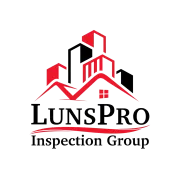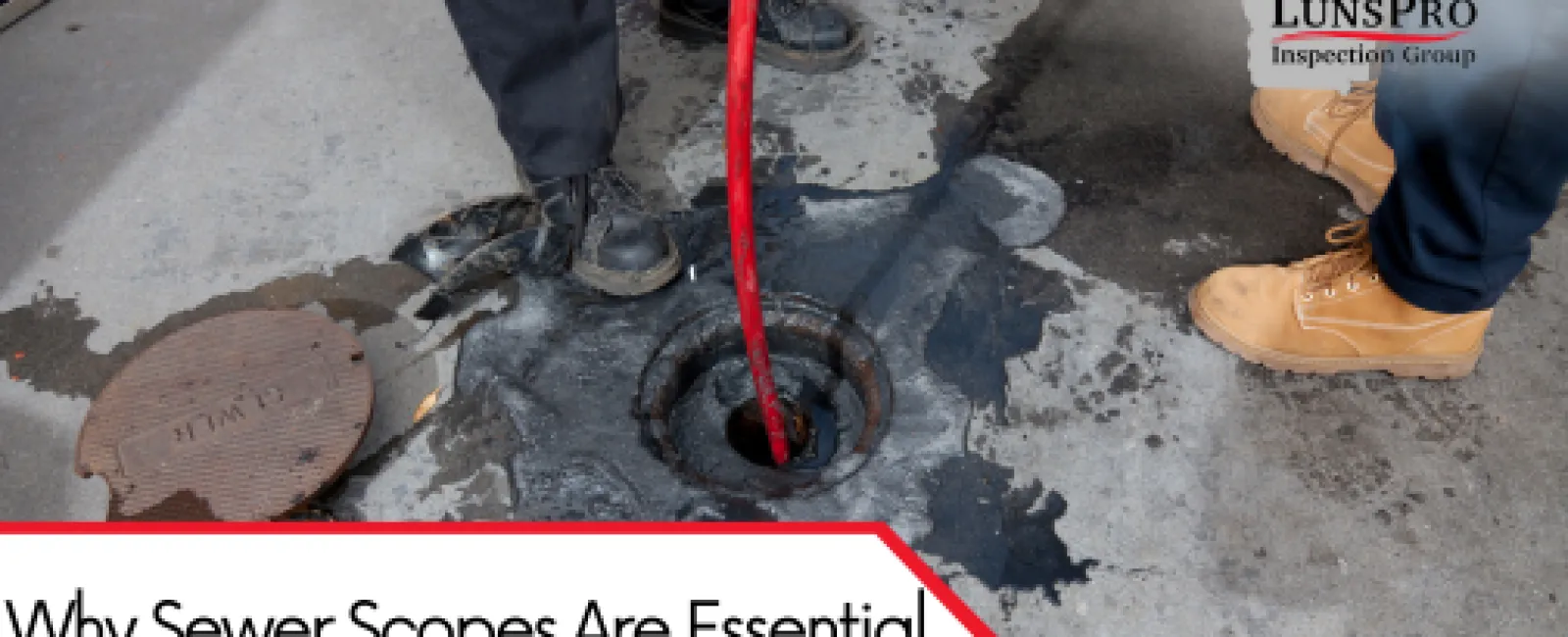When purchasing a home, most buyers understand the importance of scheduling a home inspection to check the roof, foundation, electrical systems, and HVAC units. However, one critical area is often overlooked during this process: the sewer line. Hidden beneath the ground and out of sight, sewer lines can harbor costly problems that aren't visible during a standard inspection. Unfortunately, many buyers in Georgia, South Carolina, and North Carolina don't realize the importance of sewer scopes until it's too late.
At LunsPro Inspection Group, we've seen firsthand the types of damage that unchecked sewer lines can cause. From root intrusion to collapsed pipes, these issues can lead to expensive repairs and major household disruptions. Sewer scope inspections—an additional service that goes beyond traditional Southeastern home inspections—offer buyers peace of mind and the ability to make informed decisions. In this article, we'll explore what sewer scopes are, why they're critical for homeowners in the Southeast, and how to protect your investment by incorporating them into your real estate journey.
What Is a Sewer Scope?
A sewer scope is a specialized inspection that involves running a small camera through the home's main sewer line to visually examine its condition. This line is responsible for carrying waste from your home to the municipal sewer system or a private septic tank. By inserting the camera into the pipe, inspectors can identify blockages, cracks, corrosion, or signs of root intrusion that could lead to future failures.
Unlike a general home inspection—which covers visible systems and structural elements—a sewer scope focuses exclusively on underground piping. Because these pipes are buried, problems often go unnoticed until they become emergencies. With a sewer scope, issues can be identified early, giving buyers leverage in negotiations and preventing unpleasant surprises after closing.
Why Sewer Issues Are Common in the Southeast
The Southeastern U.S. presents unique conditions that make sewer line problems especially common. Georgia and the Carolinas are home to lush vegetation and fast-growing trees, which means that root intrusion is a frequent issue. Roots naturally seek out water sources, and even the smallest crack in a sewer line can attract them. Over time, these roots can grow inside the pipe, blocking flow and causing backups.
Additionally, many homes in the Southeast were built decades ago, when clay and cast iron pipes were standard. While durable at the time, these materials are vulnerable to cracking, corrosion, and shifting soil. Combine that with the region's heavy rains, humidity, and occasional flooding, and you have the perfect environment for sewer line deterioration. Homeowners who skip sewer scopes during Southeastern home inspections risk inheriting these hidden problems without realizing it.
Common Problems Found During Sewer Scopes
Sewer scopes often reveal issues that standard home inspections cannot. Some of the most common problems include:
1. Root Intrusion
Roots are drawn to moisture and nutrients found in sewer lines. Once inside, they can create significant blockages, eventually leading to backups inside the home.
2. Pipe Deterioration
Older homes may still have clay, cast iron, or Orangeburg pipes, all of which degrade over time. These materials are prone to cracks, rust, and collapse.
3. Bellied or Sagging Pipes
Soil shifting or poor installation can cause sections of a sewer line to sink, creating "bellies." These low spots collect waste and water, which can lead to clogs and standing water.
4. Blockages and Debris
Foreign objects, grease buildup, and construction debris sometimes obstruct sewer lines. Without a sewer scope, these issues may remain hidden until they cause serious damage.
5. Collapsed or Broken Lines
In severe cases, pipes may collapse entirely, requiring full replacement. This is one of the most expensive repairs a homeowner can face.
The Cost of Ignoring Sewer Scopes
Skipping a sewer scope may seem like a way to save money upfront, but the long-term costs can be significant. Repairing or replacing a sewer line can range from several thousand dollars to tens of thousands, depending on the extent of damage and accessibility. For example, digging up a yard, driveway, or street to access pipes can drastically increase repair costs.
Additionally, sewer line failures often cause collateral damage inside the home. Sewage backups can destroy flooring, drywall, and personal belongings. Beyond the financial implications, this creates a health hazard for your family and disrupts your daily life. By contrast, a sewer scope inspection typically costs a fraction of these repairs, making it one of the most cost-effective investments a buyer can make.
Why Every Buyer Should Consider a Sewer Scope
Whether you're buying a historic home in Charleston, a suburban property in Atlanta, or a newer build in Charlotte, a sewer scope can save you from costly surprises. Here are a few reasons why every Southeastern homebuyer should consider one:
-
Hidden Risks: Sewer lines are invisible during standard Southeastern residential and commercial inspections, making sewer scopes the only way to truly assess their condition.
-
Negotiation Leverage: Discovering an issue before closing gives you the chance to negotiate repairs or request credits from the seller.
-
Peace of Mind: Even if no problems are found, knowing the sewer line is in good condition provides confidence in your investment.
-
Regional Factors: With the Southeast's tree density and older housing stock, sewer problems are more common here than in many other regions.
How Sewer Scopes Fit Into Southeastern Home Inspections
At LunsPro Inspection Group, we emphasize that a thorough home inspection is not one-size-fits-all. Southeastern residential and commercial inspections must account for regional risks, from termite activity to storm damage—and sewer lines are no exception. While a general inspection evaluates the home's visible structures and systems, adding a sewer scope provides a complete picture of the property's health.
For buyers, combining a standard home inspection with specialized services like sewer scopes ensures you're not leaving critical areas unchecked. For sellers, investing in these inspections before listing a home can make your property more marketable and prevent last-minute deal breakers.
Preventive Tips for Homeowners
Even after purchasing a home with a clean sewer scope, it's wise to take preventive steps to protect your pipes. Here are some tips for Southeastern homeowners:
-
Be Mindful of Landscaping: Avoid planting large trees or shrubs near sewer lines, as roots will naturally seek out pipes.
-
Dispose of Waste Properly: Don't flush wipes, grease, or other non-biodegradable items, which can cause blockages.
-
Schedule Routine Maintenance: Periodic sewer scopes or professional cleanings can catch early signs of problems.
-
Watch for Warning Signs: Slow drains, gurgling toilets, or foul odors may indicate sewer issues that require immediate attention.
-
Know Your Pipe Materials: If your home has older piping, consider consulting a plumber about upgrades before problems arise.
Homeownership in the Southeast comes with many rewards, but it also requires vigilance to protect your investment. Sewer lines, though hidden, play a vital role in the comfort and safety of your household. Neglecting them during the buying process can lead to costly repairs, health hazards, and unnecessary stress. A sewer scope inspection provides clear answers and empowers buyers to make confident, informed decisions.
At LunsPro Inspection Group, our mission is to help homeowners in Georgia and the Carolinas safeguard their properties through comprehensive inspections. By combining standard Southeastern home inspections with specialized services like sewer scopes, we give buyers and sellers the tools they need to avoid surprises and protect their investments. Whether you're in the market for a new home or simply want peace of mind about your current property, investing in a sewer scope is one of the smartest decisions you can make.

